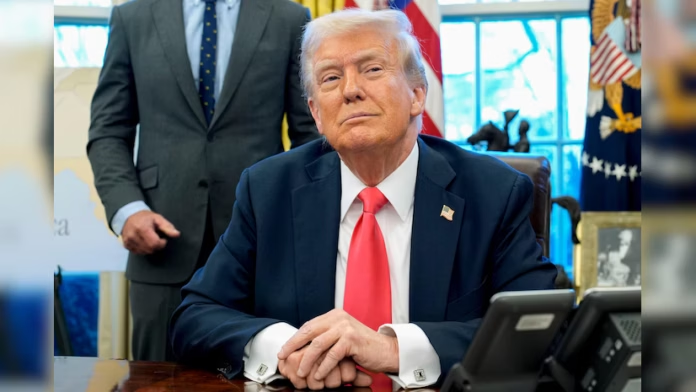The Trump administration has taken a bold step in addressing what it perceives as a growing issue of antisemitism on university campuses. The Department of Education is launching wide-ranging investigations into 60 institutions, some of the nation’s most prestigious universities. This action follows a series of troubling reports of antisemitic harassment and discrimination against Jewish students. In this blog, we discuss the implications of these investigations and the reactions of various stakeholders.
The Government’s Warning
Last Monday, the Office for Civil Rights at the Department of Education sent universities a firm message: not standing up for Jewish students might have severe consequences. The statement represents an increased level of monitoring that colleges have not seen in some time. The government is dedicated to ensuring institutions uphold their obligations under Title VI of the Civil Rights Act, which eliminates national-origin discrimination.
The Education Secretary, Linda McMahon, was clear in indicating that colleges will be required to comply with federal antidiscrimination laws if they wish to continue receiving federal funding. This stringent stance sets a precedent potentially having the power to change the landscape of higher education funding as well as free speech and advocacy policies.
Columbia University: The First Casualty
Columbia University is the first big-name victim of this crackdown, being denied $400 million in federal funding after the administration complained it wasn’t doing enough to deal with antisemitism on campus. It’s not just the loss of dollars that this will mean; it is a shot across the bows of the other institutions warning them they will need to pay heed to allegations of antisemitism.
In reaction to this, Columbia has stated that it will not stand for antisemitism and will protect all of its students. That being said, the measures taken by the university to revise its policy and respond to the antisemitic events have been called into question. Most feel that what the administration is doing is suppressing the criticism of Israel and not safeguarding the Jewish students.
The Broader Implications
These questions are not confined to Columbia alone; six Ivy League schools and other colleges come under federal monitoring. The universities where pro-Palestinian protests have happened, which were recently triggered by the events in Gaza, are included in this count. The government action has provoked immense controversy over the free expression of politics versus protection from harassment for the students.
Student activists argue that the government’s crackdown is an attempt to muzzle criticism of Israel and not necessarily a pushback against antisemitism. To them, advocating for Palestinian rights cannot be equated with antisemitism. This is an indication of the plight that involves working within free speech on college campuses, especially in politically fraught circumstances.
Reactions of Student Activists
Confronted with these questions, student activists have cried foul. They believe that the actions of the government are a trespass on their freedom to protest and express dissenting opinions. Most see this as an assault on academic freedom and the right to engage in critical debate on Israel and Palestine.
Some student groups have launched campaigns to challenge what they perceive as government intrusion. They emphasize the importance of maintaining an open forum for various viewpoints and allowing everyone’s voice to be heard on campus. This opposition indicates the growing divergence between administrative measures and student activism.
Funding Freeze and Its Consequences
Freezing the funding for Columbia has far-reaching consequences, particularly for its schools of hard science that rely heavily on federal grants. The reduction in funding is bound to hit research projects, professor pay, and student programs. Opponents argue that punishing the whole university for the wrongdoing of a few is not just unfair but also detrimental to the academic community in general.
In addition, the financial burden can disproportionately fall on Jewish students who are recipients of these programs. This raises ethical concerns regarding the government’s policy on enforcing federal compliance and the possible collateral harm that can be inflicted by such policies.
The Role of Free Speech
Free speech advocates are ringing the alarm bell over the chilling effect that the government’s move may have on free discussion in academic circles. The fear is that universities will become overly risk-averse in their management of political speech, stifling necessary debates of difficult issues like the Israeli-Palestinian conflict.
As universities scramble to meet these new regulations, there is a risk that they will compromise the robust debate of ideas that is the very essence of higher education in order to be compliant. This tension places institutions in a tricky situation, where they must weigh federal mandates against their commitment to academic freedom.
Looking Ahead
The Trump administration’s investigations of university campus antisemitism are a fundamental shift in the relationship of the federal government with higher education. As the universities grapple with the repercussions of these measures, it can be seen that the landscape of academic discourse is changing.
In the coming months, it will be critical that universities find a way to protect all students while fostering an environment that promotes free discussion. The balance between protecting students and permitting free expression is narrow, and institutions’ responses in the next several months will shape the future of college life.








